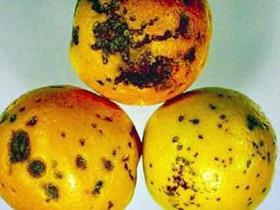
Reports from Brussels indicate that the April meeting of the European Union’s Standing Committee on Plant Health has adjourned without further decisions being taken on measures against South African citrus relating to citrus black spot (CBS).
It is uncertain what the next steps would be, but South African sources say that it is a positive development, indicating further consultations will take place before further decisions are taken.
This means the regulations pertaining to South African citrus will probably be left unchanged for at least another month, as the Standing Committee only meets once a month. The next meeting is likely to be held at the end of May.
Meanwhile South African growers and the industry as a whole have made a massive effort to mitigate the perceived risk which, from a European perspective, may be posed to European producers. A massive volume of fruit, from orchards which could at risk of infection, has already been withdrawn from shipments to the EU.
This is hugely significant,” says Deon Joubert, special envoy from the South African Citrus Industry, who has been tasked with leading negotiations with the European stakeholders. “So far this season 1161 production units have been withdrawn voluntarily by growers from marketing in the EU. At the same time last year, only 102 orchards had been withdraw. So we believe a major part of the risk has effectively been removed.”
Joubert says it is difficult to establish just how many hectares of citrus are involved, because these production units are of varying size. It is undoubtedly a significant slice of the 600 000 tonnes which were shipped to the EU last year.
Australian assitance
Meanwhile it is reported that the Australian Citrus industry is supporting South Africa in its efforts to retain its market in Europe. Citrus Australia’s market development manager Andrew Harty believes South African exporters may be inclined to seek alternate export markets from the outset of this season. With an established foothold in a number of Asian markets, Harty said the Far East would be a logical choice of replacement market for the South African industry.
“We think this would be a massive disruption to world trade if 20m cartons of citrus that traditionally has gone into Europe suddenly needs to go somewhere else,” Harty explained.
To avoid an influx in head-on competition, and the prospect of saturation in key markets, Australia is assisting the South African industry with their push to retain European access.
“We feel there is no justification for any potential ban,” Harty said. “It’s been scientifically proven that fruit is not a pathway for the transmission of black spot. We feel market access should not be based on lobbying by domestic industries but on scientific evidence.”
The road ahead
In recent weeks the South Africa has made extraordinary efforts to inform European producers and other stakeholders on what they are doing to mitigate any risk that CBS can be transferred to European orchards. The South Africans have always argued that this risk is so small that it is insignificant, but they clearly also decided that self-discipline will be the best way to convince skeptical European and especially Spanish producers.
They have also argued that a CBS risk actually only applies to late season oranges and have introduced further measures, above what the European import requirements are, for this part of the season.
From the middle of July all South African citrus being shipped to Europe will be subject to all the normal RMS measures as well as the 5 additional measures contained in new proposals which has been submitted to the EU.
It is understood that these steps have been positively received in Brussels. The most significant of these steps are the ethephon test specifically introduced to effectively test orchards 14 days prior to packing. “This has been widely communicated and we received excellent reviews and feedback on this being scientifically sound and practical to detect possible remaining CBS in orchards,” says Joubert.
The registration of all orchards of oranges will be suspended as of the end of week 29, unless they meet the registration requirements applicable to all citrus types for export to EU, plus the additional requirements. Orchards of the citrus type oranges will also not be eligible to register for export to the EU after the end of week 29 if they do not have a “clean record” for the past export season (2013).






No comments yet